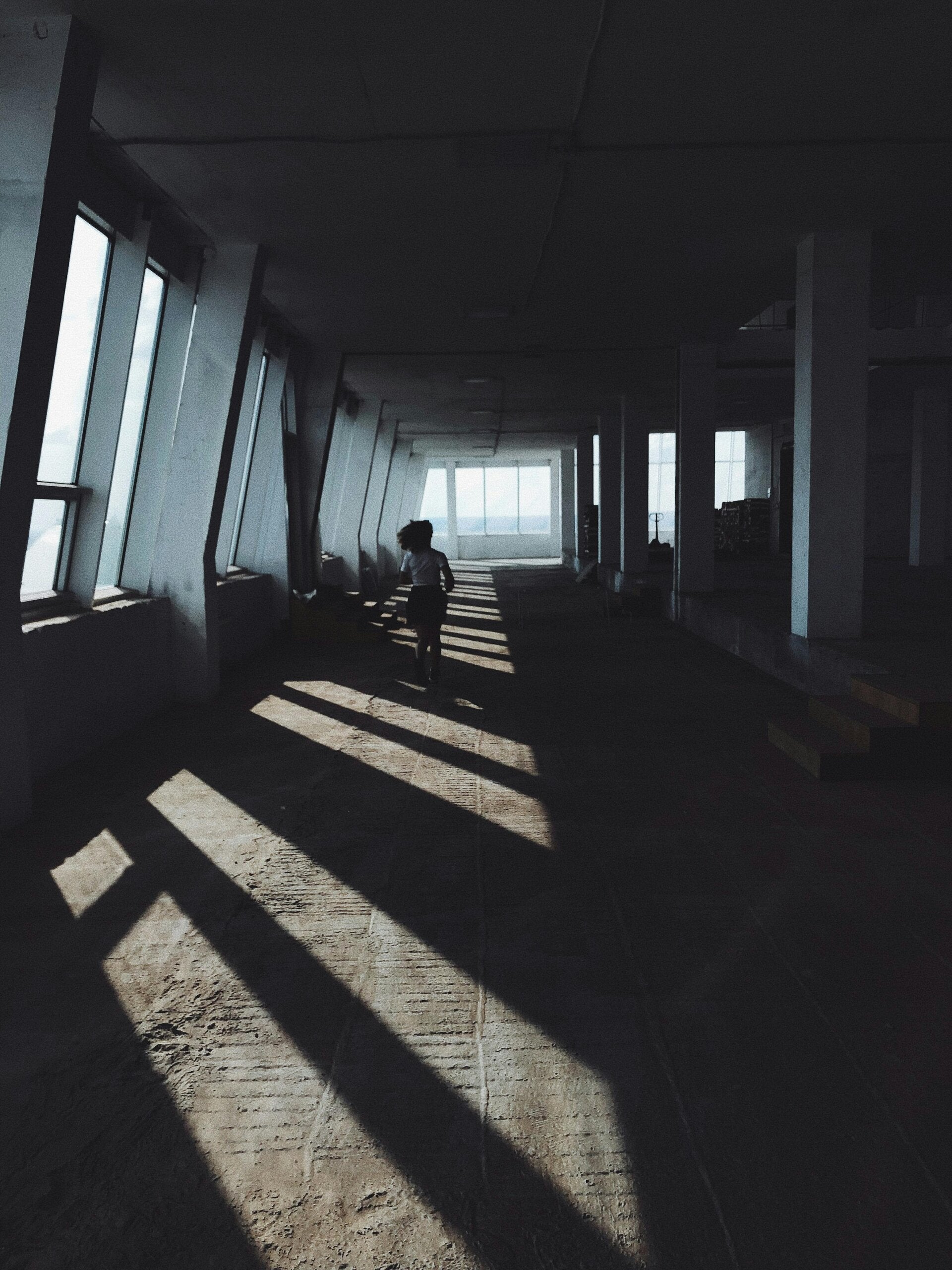One Of my less traumatizing memories at the start of my life
My earliest memories are fragmented, like shards of glass reflecting distorted images of a life I barely comprehend. The house, a dilapidated victorian in a decaying part of town, looms large in my memory, not as a place of comfort and security, but as a cage. The peeling paint, the broken windows, the ever-present stench of stale cigarette smoke and neglect – these are the sensory details that imprinted themselves on my young mind, becoming a constant, suffocating backdrop to my childhood. My parents, I suppose you could call them that, were figures of chaos and unpredictability. Their names, once whispered with a mix of fear and resentment, now feel as distant and unreal as the faded photographs I found tucked away in an old trunk years later. They were rarely present in the way a parent should be, their attention fleeting and conditional, dispensed only when their own needs were met. More often than not, their absence was a profound and terrifying void. The abuse was insidious, a slow drip of poison that eroded my sense of self-worth and security. It wasn't always physical; the emotional cruelty was far more pervasive and damaging. Their words, laced with venom and disdain, became a constant soundtrack to my existence. I was constantly told I was worthless, unlovable, a burden. These words, etched into my soul, formed a deep and lasting wound that continues to heal even today. The subtle yet pervasive manipulation, the constant undermining of my self-esteem, created a deep-seated sense of inadequacy that followed me into adulthood. Physical abuse, while less frequent, was no less terrifying. The unpredictable nature of it, the sudden flare of anger, the fleeting moments of violence – these left me in a constant state of hypervigilance, always on edge, anticipating the next explosion. I recall specific instances vividly; the sting of a slap across the face, the dull ache of a kick to my shins, the chilling fear that gripped me as I huddled in a corner, trembling, trying to make myself small and invisible. These weren't isolated incidents; they were markers of a deeply dysfunctional and abusive family dynamic. One particular memory stands out with chilling clarity. I was probably no older than five, sitting alone in the dimly lit kitchen, playing with a chipped teacup. My father, fueled by alcohol, burst through the door, his face contorted with rage. He didn't yell; he didn't speak. He simply grabbed me, lifting me easily in his large hands, and threw me against the wall. The impact knocked the air from my lungs, leaving me breathless and terrified. The chipped teacup shattered on the floor, its fragments mirroring the pieces of my shattered innocence. I lay there, stunned, the silence more terrifying than the violence itself. He didn't apologize; he didn't comfort me. He simply disappeared, leaving me alone with the echoes of his anger and the growing sense that I was fundamentally unlovable. The silence, in many ways, was worse than the violence. The absence of comforting words, of nurturing touch, of basic human connection - this created a void that felt vast and unfillable. I learned early on to suppress my emotions, to become invisible, to occupy as little space as possible. I developed a hyper-awareness of my surroundings, always scanning for danger, always anticipating the next outburst. My mother, though less physically violent, contributed equally to the toxic environment. Her neglect was a form of abuse in itself. She was often absent, emotionally unavailable, preoccupied with her own struggles. She provided little or no emotional support, no comfort, no sense of belonging. She seemed to actively avoid me, as though my very existence was an inconvenience. This absence, this emotional void, left me feeling profoundly alone, adrift in a sea of neglect and despair. I longed for the simple act of being held, of being told I was loved, of feeling safe and secure. These basic human needs remained unmet, fostering a deep-seated sense of insecurity and abandonment that haunted me for years. The house itself was a reflection of the emotional neglect I endured. It wasn't just a place of physical abuse; it was a place of profound emotional deprivation. The lack of warmth, the constant state of disrepair, the general absence of care – all contributed to a sense of instability and insecurity that permeated every aspect of my life. It was a place where I felt unsafe, unloved, and utterly alone. The lack of food, the inadequate clothing, the absence of basic hygiene – these were constant reminders of our impoverished situation. But it wasn't just the material deprivation that was damaging; it was the emotional starvation that was far more profound. The absence of love, the lack of affection, the constant negativity – these were the things that truly scarred me. The isolation was overwhelming. I had no friends, no confidantes, no one to share my experiences with. I was trapped in a world of fear and silence, where speaking out was unthinkable. The fear of retribution, of further abuse, kept me silent. I learned early on that silence was a form of self-preservation. It was a way to protect myself from the pain, the anger, the unpredictable nature of my parents. The silence became a blanket, a shield against the harsh realities of my life. But that silence, that isolation, also became a prison. As I grew older, the abuse morphed, becoming more subtle, more insidious. The constant criticism, the belittling remarks, the subtle manipulations – these became the weapons of choice. I was constantly compared to others, always falling short, always deemed inadequate. My self-esteem withered and died, leaving me with a deep-seated sense of worthlessness that plagued me for years to come. The constant barrage of negativity eroded my self-confidence, leaving me feeling powerless and incapable. I learned to become a chameleon, adapting to the moods and whims of my parents. I learned to anticipate their reactions, to read their expressions, to anticipate their anger. I became adept at reading the subtle signs of an impending outburst. This hyper-vigilance, a constant state of alertness, became ingrained in my personality, a survival mechanism that served me well in the chaotic world I inhabited. But it also came at a cost. The constant fear, the constant tension, the constant anticipation of the next attack – this took its toll. I was always on edge, never truly relaxed, never truly at peace. The psychological damage inflicted during these formative years was profound and long-lasting. The feelings of isolation, abandonment, and worthlessness were deeply ingrained. I carried the weight of this trauma with me for years, struggling to understand my place in the world, my value as a human being. The scars, both visible and invisible, serve as a constant reminder of the pain I endured. But those scars also bear witness to my resilience, my determination to overcome the adversity I faced. This is my story, the story of a shattered innocence, a story of survival, and ultimately, a story of hope. The journey to healing was long and arduous, but it is a journey that continues to this day.

